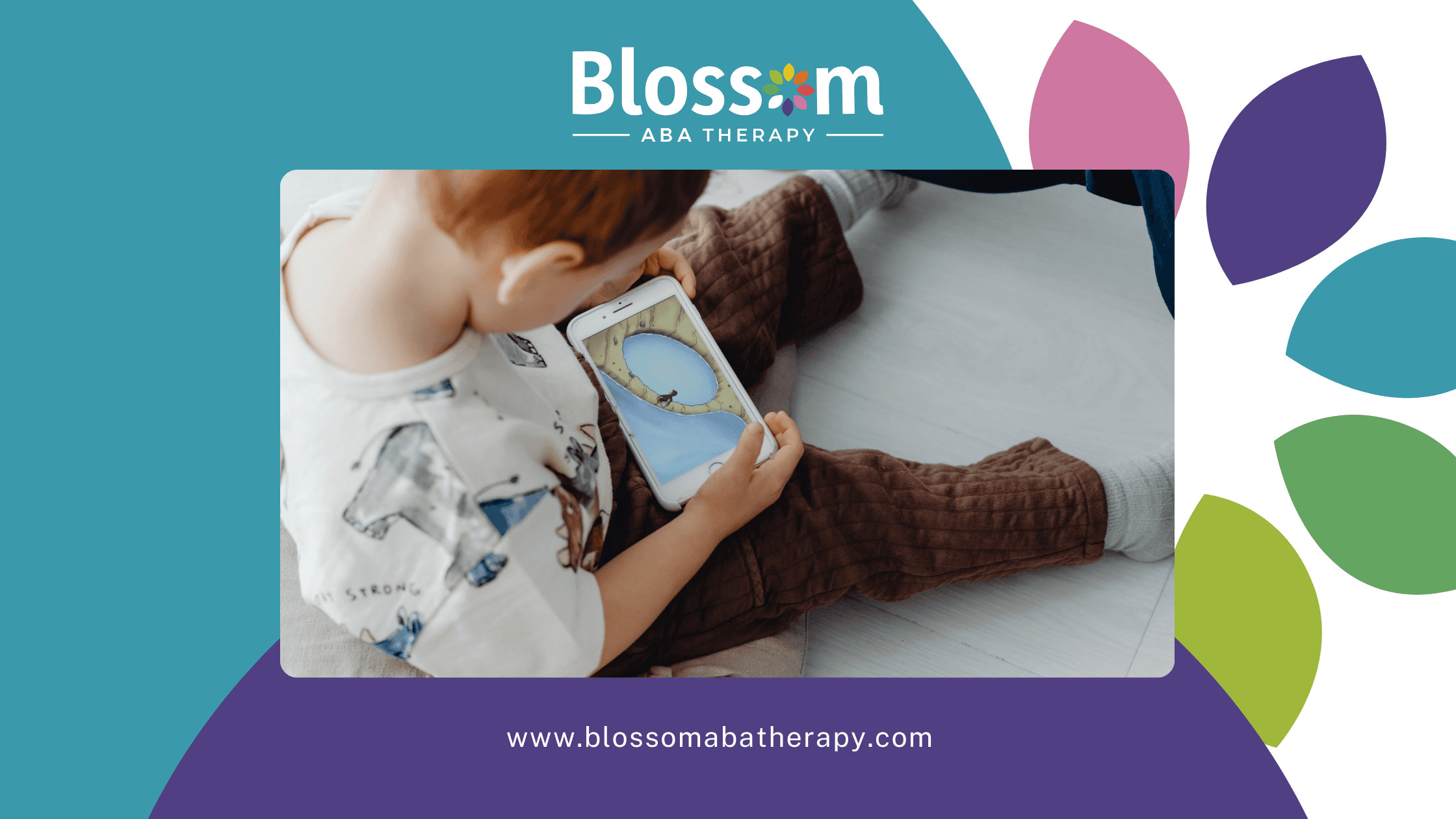Our New Clinic in Peachtree Corners is Now Open! Serving families in Norcross, Dunwoody, Sandy Springs, Duluth, Johns Creek, Alpharetta, Roswell, Suwanee, Brookhaven & nearby areas.

Is It Autism or Just Introversion? Spotting the Signs
Oct 2, 2025

Is It Autism or Just Introversion? Spotting the Signs
Oct 2, 2025

Is It Autism or Just Introversion? Spotting the Signs
Oct 2, 2025

Is It Autism or Just Introversion? Spotting the Signs
Oct 2, 2025
Is it autism or just introversion? Learn key differences to understand your child's behavior and when to seek evaluation.
Many kids who prefer quiet or alone time might make us ask, "Is it autism or just introversion?" The truth is, introversion is a personality trait where children enjoy solitude and recharge energy quietly. Autism, however, is a neurodevelopmental condition characterized by difficulties with social communication, repetitive behaviors, and sensory sensitivities.
Key differences help tell them apart:
Social Interaction: Introverted kids can understand social cues and engage socially when they want to. Children with autism often struggle to read body language, tone, or engage in back-and-forth conversation.
Emotional Expression: Introverts typically recognize and express feelings clearly. Autistic children may find this challenging.
Behavior Patterns: Autism can include repetitive behaviors and strong attachment to routines. Introverts usually do not display these patterns.
Sensory Sensitivities: Children with autism may be sensitive to lights, sounds, or textures; introverted children generally are not.
According to the CDC, about 1 in 31 children in the U.S. have autism, making professional evaluation crucial when behaviors raise questions.
At Blossom ABA Therapy, we see many families navigating these questions. If your child prefers solitude but you notice challenges in communication or behavior beyond typical introversion, scheduling a professional evaluation can clarify the path forward.
Call Blossom ABA Therapy today to learn how our expert team can support your child's unique development journey.
Many kids who prefer quiet or alone time might make us ask, "Is it autism or just introversion?" The truth is, introversion is a personality trait where children enjoy solitude and recharge energy quietly. Autism, however, is a neurodevelopmental condition characterized by difficulties with social communication, repetitive behaviors, and sensory sensitivities.
Key differences help tell them apart:
Social Interaction: Introverted kids can understand social cues and engage socially when they want to. Children with autism often struggle to read body language, tone, or engage in back-and-forth conversation.
Emotional Expression: Introverts typically recognize and express feelings clearly. Autistic children may find this challenging.
Behavior Patterns: Autism can include repetitive behaviors and strong attachment to routines. Introverts usually do not display these patterns.
Sensory Sensitivities: Children with autism may be sensitive to lights, sounds, or textures; introverted children generally are not.
According to the CDC, about 1 in 31 children in the U.S. have autism, making professional evaluation crucial when behaviors raise questions.
At Blossom ABA Therapy, we see many families navigating these questions. If your child prefers solitude but you notice challenges in communication or behavior beyond typical introversion, scheduling a professional evaluation can clarify the path forward.
Call Blossom ABA Therapy today to learn how our expert team can support your child's unique development journey.
Many kids who prefer quiet or alone time might make us ask, "Is it autism or just introversion?" The truth is, introversion is a personality trait where children enjoy solitude and recharge energy quietly. Autism, however, is a neurodevelopmental condition characterized by difficulties with social communication, repetitive behaviors, and sensory sensitivities.
Key differences help tell them apart:
Social Interaction: Introverted kids can understand social cues and engage socially when they want to. Children with autism often struggle to read body language, tone, or engage in back-and-forth conversation.
Emotional Expression: Introverts typically recognize and express feelings clearly. Autistic children may find this challenging.
Behavior Patterns: Autism can include repetitive behaviors and strong attachment to routines. Introverts usually do not display these patterns.
Sensory Sensitivities: Children with autism may be sensitive to lights, sounds, or textures; introverted children generally are not.
According to the CDC, about 1 in 31 children in the U.S. have autism, making professional evaluation crucial when behaviors raise questions.
At Blossom ABA Therapy, we see many families navigating these questions. If your child prefers solitude but you notice challenges in communication or behavior beyond typical introversion, scheduling a professional evaluation can clarify the path forward.
Call Blossom ABA Therapy today to learn how our expert team can support your child's unique development journey.
Many kids who prefer quiet or alone time might make us ask, "Is it autism or just introversion?" The truth is, introversion is a personality trait where children enjoy solitude and recharge energy quietly. Autism, however, is a neurodevelopmental condition characterized by difficulties with social communication, repetitive behaviors, and sensory sensitivities.
Key differences help tell them apart:
Social Interaction: Introverted kids can understand social cues and engage socially when they want to. Children with autism often struggle to read body language, tone, or engage in back-and-forth conversation.
Emotional Expression: Introverts typically recognize and express feelings clearly. Autistic children may find this challenging.
Behavior Patterns: Autism can include repetitive behaviors and strong attachment to routines. Introverts usually do not display these patterns.
Sensory Sensitivities: Children with autism may be sensitive to lights, sounds, or textures; introverted children generally are not.
According to the CDC, about 1 in 31 children in the U.S. have autism, making professional evaluation crucial when behaviors raise questions.
At Blossom ABA Therapy, we see many families navigating these questions. If your child prefers solitude but you notice challenges in communication or behavior beyond typical introversion, scheduling a professional evaluation can clarify the path forward.
Call Blossom ABA Therapy today to learn how our expert team can support your child's unique development journey.
Is It Autism or Just Introversion? | Blossom ABA Therapy
Is It Autism or Just Introversion? | Blossom ABA Therapy


Seeking Support?
We're Here to Help!
Our dedicated professionals specialize in ABA therapy to foster your child's growth and happiness. We're here to provide the personalized care and attention your child deserves. Reach out to learn how we can support your family's journey.
Connect With Our ABA Experts Today.
News & Blogs
News & Blogs
Latest News & Blogs
Latest News & Blogs
Latest News & Blogs
Latest News & Blogs

ARE YOU PASSIONATE ABOUT HELPING CHILDREN
ARE YOU PASSIONATE ABOUT HELPING CHILDREN
Join Our Team
Join Our Team
Join Our Team
Join Our Team
Blossom Therapy constantly seeks qualified BCBAs and RBTs to fill full and part-time positions.
Blossom Therapy constantly seeks qualified BCBAs and RBTs to fill full and part-time positions.
Blossom Therapy constantly seeks qualified BCBAs and RBTs to fill full and part-time positions.
Blossom Therapy constantly seeks qualified BCBAs and RBTs to fill full and part-time positions.






